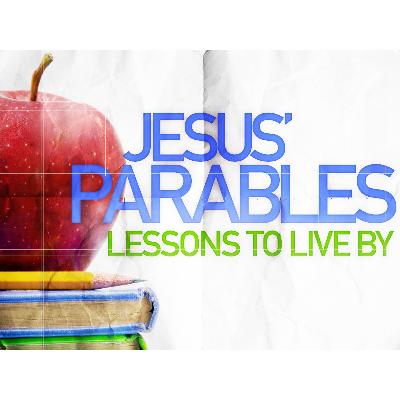SERMON SUMMARY
Have you ever wondered why some people are open to spiritual truth, whereas others are not? Well, Jesus explained the answer to this mystery through a parable found in Luke chapter 8:4-15, “The Parable of the Sower” (a parable is a story taken from common, everyday life, used to convey some spiritual truth). Jesus told the Parable of the Sower to explain the reason for peoples’ conflicting responses to him. In verses 11-15, Jesus pulled his disciples away privately and explained the meaning of the parable. According to Jesus, [a] The seed represents the word of God, [b] The sower is someone who communicates God’s Word to others, [c] The differing soils represent differing responses people have to Biblical truth. We can expect people to have one of four different responses to the Word of God.
[1] The first kind of response we can expect is “unbelief” (vv. 5, 12). [2] The second response is belief followed by apostasy (falling away from the faith) due to temptation (vv. 6, 13). Some Bible students believe that this particular individual was not a Christian at all. They take this position because of the apparent defectiveness of this person’s faith. This pastor, however, believes that the person represented in this second soil is a believer. According to verse 13, there was germination and initial growth, a sure sign of life. The problem is that there was not a deep enough root system to sustain a life of perseverance. I believe this type of soil represents someone who experienced a genuine saving faith in Christ, but in the face of temptation, withered away. He didn’t fall away from eternal life, but from following Jesus in discipleship. So while he didn’t lose his salvation, he suffered the loss of his reward in eternity. [3] The third response we can expect is belief followed by carnality due to a preoccupation with the things of this world (vv. 7, 14). Carnality here is defined as a Christian who is knowingly disobedient to Christ for a period of time. His lifestyle in many ways imitates that of the non-Christian (1 Cor. 3:4). [4] The final response is found in verse 15: belief followed by sustained fruit-bearing (vv. 8, 15). This is the person whose growth in Christlikeness is obvious to all. In his life, we see Galatians 5:22-23 on display. Not perfectly—but obviously.
From this parable emerge five important implications for the lives of believers:
- We are to share the good news of Jesus Christ with everyone. In this parable, the sower wasn’t particular about who he shared his faith with. He didn’t try to predetermine whom he thought was a good candidate for spiritual things and who was not. He just sowed the seed.
- We should expect different responses to the gospel of Jesus Christ. This parable tells us that not everyone will respond to the gift of forgiveness and eternal life. You see, this parable also tells us that some will respond to the gospel message. The problem is we don’t know who will and who won’t! But that is not our responsibility; it is God’s responsibility to bring about new life. It is our responsibility to share the message. We leave the results to God.
- We need to be aware that three enemies oppose the work of God’s Word in our life: the world, the flesh, and the devil. In the parable we are studying today, we see the influence of all three. One of Satan’s objectives is to hinder people from coming to faith in Christ. If his efforts fail there, then his next objective is to render believers ineffective in their God given mandate to be salt and light in the world; that is, to be influential and make a positive difference in the world.
- We must realize that a good start is no guarantee of a successful finish. Some Christians will leave the faith due to trials and tribulations. But if you walk with God faithfully every day, the future will take care of itself. Oh, you can expect challenges along the way. The world, the flesh, and the devil assure us of that. But as we make daily decisions to walk obediently with God, we lay the groundwork for future fruitfulness.
- God desires that we be fruitful! Now we can’t do this in our own power. But that is not God’s plan, anyway. We bear fruit; that is, we grow and change into Christlikeness as we abide in Christ (John 15:4).
Jesus wants us to live our lives in the power which he supplies. He wants us to learn to trust him, to walk by faith and not by sight. He wants to transform our character. He wants to use us to reach out and share God’s Love with our non-Christian friends and neighbors. He wants us to exercise our spiritual gifts and talents in the context of a local body of believers so that we can mature both as individuals and as a church. Now none of us have “arrived.” I certainly haven’t.
But we should be moving in this direction. We should be becoming more fruitful. That is God’s desire, and that is what he is trying to do in your life.
APPLICATION / CHALLENGE
- With which soil do you most closely identify?
- If you don’t consider yourself a Christian, what keeps you from embracing Christ?
- If you’re a believer, but off-track spiritually, what’s hindering your fruitfulness?
- What is one specific change you can make this week to encourage greater fruitfulness?


